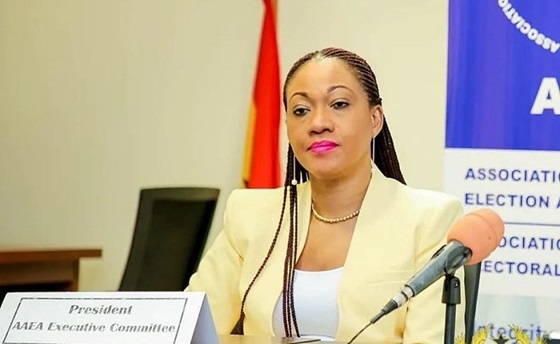The Electoral Commission (EC) has confirmed that the appointment of the district electoral officer at Pusiga in the Upper East Region has been terminated.
This decision comes in light of findings during the exhibition of the provisional voter’s register, which revealed that the officer had transferred voters without their consent from two polling stations in the Tamale South constituency and one in the Sagnarigu constituency to the Pusiga constituency in the Upper East Region.
The development was contained in a response to a petition from the National Democratic Congress (NDC) demanding a forensic audit of the voter’s register.
“We acknowledge that our Officer in Pusiga carried out 38 unauthorized transfers. The said transfers have been reversed and the Officer’s appointment has been terminated”, the EC confirmed.
The EC also highlighted the integrity of its systems, noting that all transfers are recorded, including the date, time, and responsible officers, making them verifiable within the Voter Management System (VMS).
Furthermore, the EC addressed concerns raised by the National Democratic Congress (NDC), which has yet to provide evidence of the alleged “15,000 instances of unidentifiable voter transfer paths.”
“All data, from registration to transfers and amendments are not deleted from the Voter Management System. All voters registered in the VMS can be accounted for,” the statement read.
According to the Commission, even if voter data becomes corrupted, there is still evidence, either paper or electronic indicating that a registration occurred.
“This allows the Commission to identify the voters and invite them for inclusion, should it be revealed that they are not in the Provisional Voters Register,” the EC said.
On the demand for a re-exhibition of the voter's register, the Commission said due to limited time it cannot hold a physical exhibition exercise but will allow an online exhibition of the register until Election Day.
The Commission again rejected calls for a forensic audit of the Provisional Voter's Register (PVR).
The EC maintains that the legal and administrative processes established to clean the register have not been fully exhausted, and thus a forensic audit is not justified at this stage.
"As a Commission, we are of the view that the existing legal and administrative processes for cleaning the PVR have not been fully exhausted to justify the call for a forensic audit," the EC stated.
To foster collaboration and transparency, the EC has extended an invitation to the NDC to join in a discussion table.
This dialogue, the EC believes, will provide an opportunity for the NDC to see firsthand the steps taken to resolve the discrepancies.





